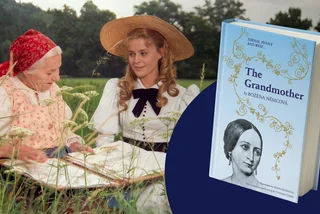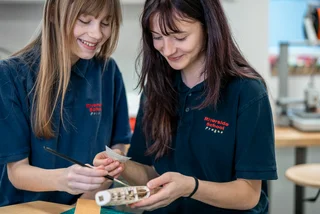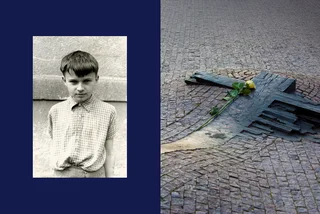With Valentine’s Day coming up, it seemed fitting to look a little beyond the simple tips for places to go and delve somewhat into the cultural dimensions of love and relationships among Czech people.
Since love is a personal matter, I thought I’d focus on what my friends’ and colleagues’ opinions on the subject were, starting with what you say…
One Simple Word
The most basic expression of love is to say it. ‘I love you.’ In Czech this can be ‘Miluju tě’(or ‘Miluju Vás’ if you and your partner want to maintain some formality) or, possibly, ‘mít rád/ráda’. Ordinarily the latter is translated as ‘to like’. But it can also mean ‘to love’. The pop song ‘Měls mě vůbec rád?’wouldn’t have quite the same sting if it wasn’t about love.
It would seem some Czech people are no clearer on the distinction and the answers given on the thread in the link show quite divergent opinions. Some think ‘milovat’ is deeper while one commentator saw ‘mít rád/a’ as an expression of greater feeling. A few saw ‘milovat’ as only for children.
My friends and colleagues saw ‘milovat’ as more intense and expressing stronger emotions. However, most pointed out that the word is also used for inanimate objects as much as people. English is not much different as the slogan for a well-known fast food chain shows. One colleague observed that ‘milovat’ was used among young people to express feelings of friendship.
Personally as a foreigner, ‘milovat’ seems more romantic. It may be because it is the base of ‘to make love’ (zamilovat se) but also because I’m simply used to using ‘mít rád/ráda’ for things I like and have never heard it used around me to express love for a person. Though it appears that for some it clearly means ‘love’ for my ‘English thinking’ I feel the need for a word which more exclusively expresses this feeling.
Just Friends
When I first moved to the Czech Republic, something which caused occasional confusion was the use of the word ‘friend’. Said with the right lilt, it was clear the man or woman meant the friend was more-than-a-friend. But that only raised another question. Was the person merely more-than-a-friend or the actual boyfriend/girlfriend/significant? Quite often, though, the word ‘friend’ is said so it could be either of these or a plain old, ordinary, strictly platonic, nothing physical, friend.
The confusion would lie in the language. Přítel and přítelkyně can be used, respectively, to mean both a male friend or boyfriend and female friend or girlfriend. Kamarád/ka appears to have only social meaning and most translations make the word seem quite informal. Buddy or mate are given as alternate meanings, which is not the case for přítel and přítelkyně. Basically, whether the relationship is romantic or a friendship přítel and přítelkyně express something stronger. Having said that, men don’t appear use the word much to describe another male friend, at least not in my experience. Women seem to use přítelkyně more often for female friends.
The Czech word partner has almost the identical use as the English word. It can describe business relations as well as more serious romantic ones. Friends and colleagues said that the word suggested a much stronger commitment. From experience I don’t hear it used as often as in English when people are introducing their partners.

Get a Room
On the surface, especially the surface of street-side newsagents, Czech society seems quite open about sex. Yet, I don’t think displays of affection are quite so public. Of course this is a hard one to quantify without looking creepy. Good thing I have slightly less shame than the average person.
I’m not suggesting it is absent. You’ll see people holding hands, kiss and sit with legs entwined, but it does seem tamer than home. Admittedly, I was younger then and so, if not a participant in acts of affection, more keenly aware of what I was missing out on.
My friends have a different view. Most of them think people are openly affectionate in public and some even said they themselves were. Moreover, most of them are not bothered, providing the affection is within reason.
Odds on Favorite
It would seem that flowers remain the preferred romantic gift. Chocolates appear to be something given among friends. Of course flowers are given for other reasons, but they still remain an important romantic gift.
When it comes to giving flowers you have probably been told you should buy an odd number for birthdays, dates and when giving them as a gift. Even numbers are for funerals. If you forget and ask for an even number, florists will check that you don’t want an odd number. Or so I’ve experienced, so a dozen red roses aren’t quite the same romantic gesture here as elsewhere.
Sales Lead | High-Performance Computing & AI

As to why the odd number? Funnily enough as soon as I typed ‘proč lichý’ into Google, I didn’t have to finish typing the rest of the question. The top search was this very topic. The few websites which mentioned the origin traced it back to Gut Jarkovský.
Say It with Orange Blossoms
The traditional meanings of flowers and their colors, called květomluva in Czech, share a common root in the Victorian era. Having become popular in nineteenth century Britain it spread to the rest of Europe, so red roses (červené růže) are readily understood as an expression of love. A red tulip (červené tulipány) is equally an expression of affection/desire. However other flowers have traditional meanings of love too. Orange blossoms (pomerančový květ) say ‘My love is true,’ and a fern frond (kapradí) can mean ‘Love at first sight’.
However, just as similar sounding words in different languages can have different meanings, flowers don’t always translate. The Chinese Aster (čínská astra), while a symbol of love in the English speaking world, is according to one explanation given to someone when you want to break up with them. Carnations (karafiát) have a more ambiguous use. One site says the meaning is ‘You have ignited my love,’ but a red carnation can be an expression of impatience. Admittedly today, the meanings are not taken as seriously, and this is included more for fun and to provide inspiration for other types of flowers.
**
Tell us your love stories.
Related articles












 Reading time: 5 minutes
Reading time: 5 minutes 


 Italian
Italian
 Swedish
Swedish
 Spanish
Spanish
 Ukrainian
Ukrainian
 Norwegian
Norwegian






















